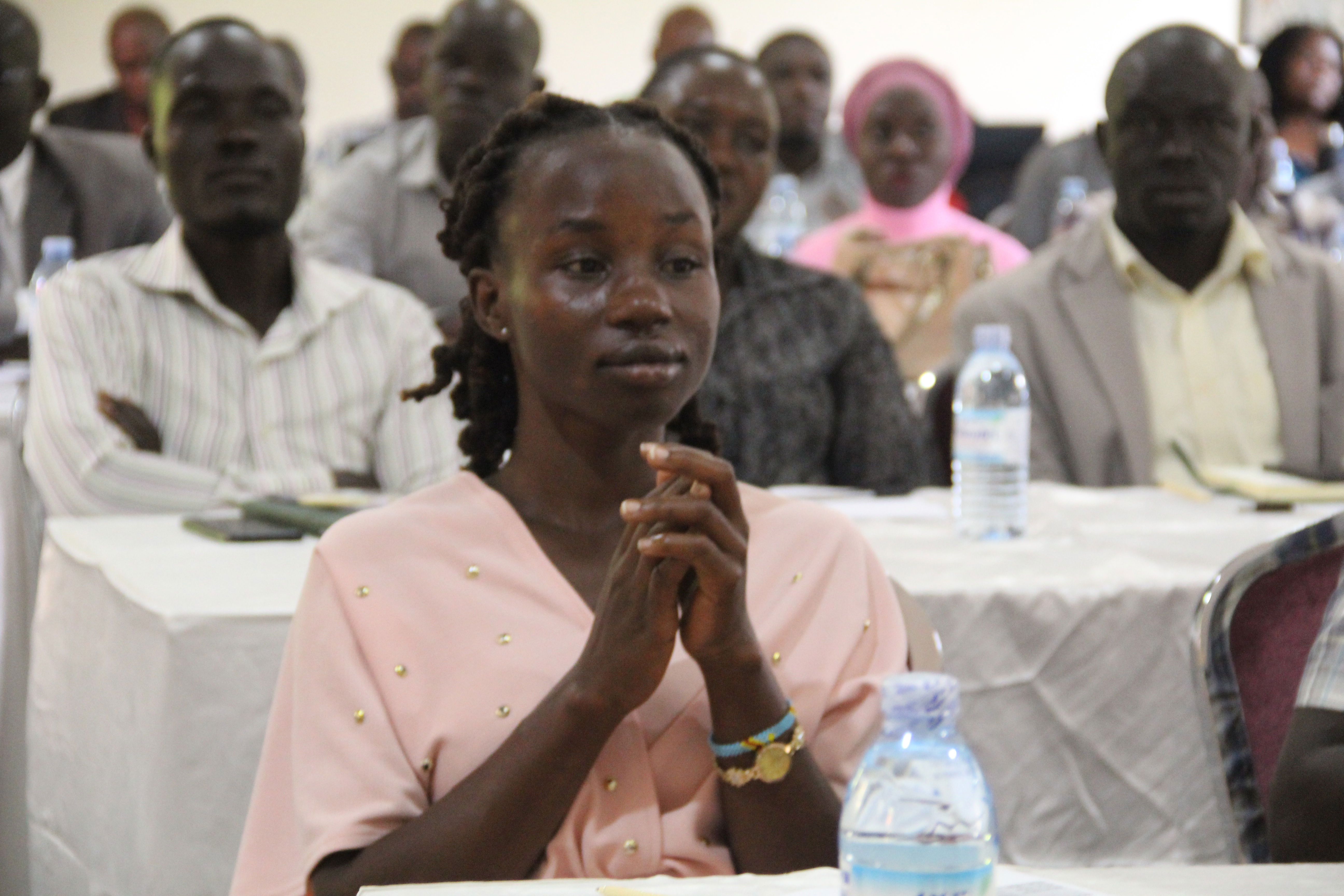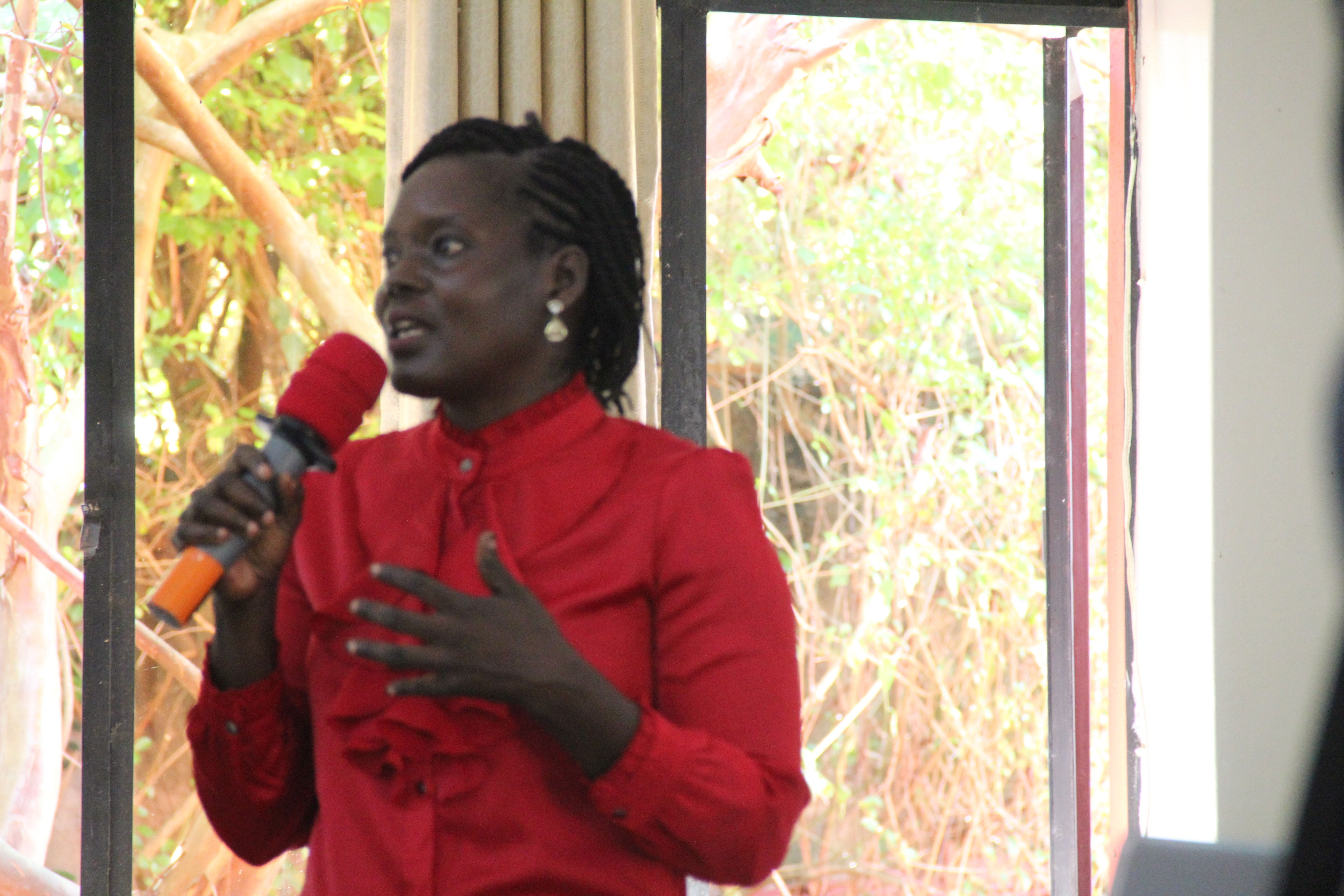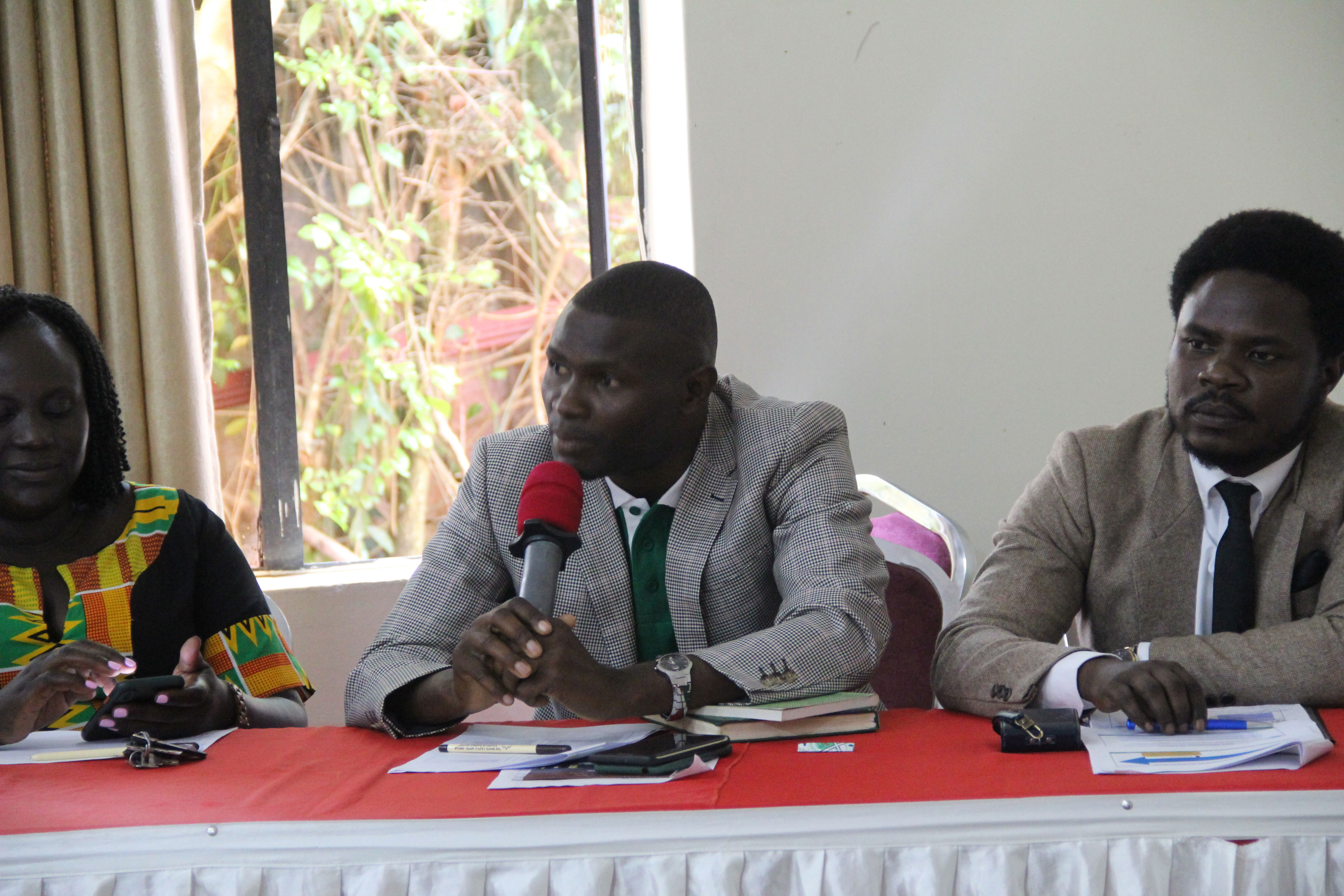Successful Regional Climate Protection & Financing Dialogue Hosted By Action Aid
In a bid to address the increasing challenges faced by the West Nile region in Uganda, particularly in terms of water resource management, ActionAid Uganda (AAIU) and the West Nile Development Association (WENDA) recently organized a groundbreaking two-day dialogue event held in Arua at the White Castle Hotel. The great West Nile Regional Dialogue, as a key regional dialogue event aimed to enhance the protection of water sources and secure funding for the Albert Nile Catchment Area.
As key to the aims, the event also aimed at enhancing the protection of water sources and secure funding for the Albert Nile Catchment area, the dialogue event was Organized by ActionAid Uganda in collaboration with the West Nile Development Association (WENDA), the dialogue brought together key stakeholders from local governments and government departments to foster collaboration and address pressing environmental concerns.
The dialogue also brought to action the ongoing grappling challenges facing the region as Water resource in the region accounts to one of the precious resource, essential for life and the sustenance of our environment.
"Key to note is that, over the years, West Nile region of Uganda has been grappling with the challenges of floods, droughts, environmental degradation, and pollution of water sources."

Attentive Participants - at the Dialogue
Day One: Addressing Environmental Challenges and Consolidating Efforts
To address the challenges facing the region, the morning session focused on waste management and the funding gaps that hinder effective implementation of environmental initiatives.
Thereafter, a keynote speaker shed light on best practices in local governments, offering valuable insights into tackling environmental degradation and pollution of water resources.
The presentation highlighted the challenges and funding gaps in waste management in Ugandan local governments. It emphasized the need for infrastructure development, public awareness, enforcement of regulations, and stakeholder collaboration. Best practices, such as waste segregation, recycling programs, and advocacy, were identified. Universities were called upon to contribute through innovation, research, capacity building, and generating accurate waste data (See Annex I - For detailed key note Speech Address herein attached).

Front - Mrs. Ayikoru Hatfa, Rep CEFTRA WN Listening to the Key Note Address
The preceding sessions continued with the presentation of a consolidated report highlighting the specific waste and water management gaps across the districts. This comprehensive overview provided a basis for discussion and the identification of emerging issues.
This regional dialogue event also provided a platform for the participants to engage in a presentation of the consolidated waste and water management gaps, as well as funding challenges across the districts.
The District Natural Resources Officer (DNRO) and District Environment Officer provided valuable insights into the current state of the environment and highlighted areas requiring urgent attention.
The presentation highlighted the critical issues and impacts of poor natural resources management in West Nile Region, including high dependency on biomass energy, encroachment of wetlands and forests, and increased pollution. It identified limitations and strengths of local governments, emphasizing the need for increased funding, staffing, coordination, and enforcement. The Natural Resources Department expects support from both local and central governments in addressing these challenges and promoting better management practices. (See Annex II - For detailed Draft Issue Paper Presentation herein attached).
"The District Natural Resources Officer (DNRO) and District Environment Officer presented a paper on the consolidated waste and water management gaps, along with funding challenges across the districts."

Mrs. Avako Nolah - DNRO MARACHA DLG - Presenting the Issue Paper
The ensuing discussions allowed participants to ask questions, validate issues, and collectively identify emerging priorities.
However, during the afternoon, participants engaged in lively discussions, asking questions, and validating the issues at hand. The well moderated dialogue event facilitated a dynamic exchange of ideas, ensuring that each concern was addressed and clarified with an ultimate goal to generate commitments from key district local government representatives to increase funding for natural resources plans, leading to sustainable environmental practices.
Day Two: Commitments and Solutions
The second day focused on generating commitments from the key district local government representatives to increase funding for natural resources plans as the district-based group discussions facilitated collaborative thinking and identify actionable steps to address the challenges faced in the West Nile region.
As key to understanding the sectoral commitments, the panel discussions were also held, focusing on innovations and opportunities for waste management in humanitarian settings, cities, and municipalities. A representative from the Ministry of Water and Environment delivered a keynote address on the conservation and protection of the Albert-Nile Catchment. They discussed achievements, challenges, and lessons learned in this context.
Mr. Barnabas Mubangizi, Director of Water Resources Management at the Ministry of Water and Environment, discusses the achievements, challenges, and lessons learned in the Upper Nile Water Management Zone (UNWMZ) in Uganda.
He emphasizes the importance of effective water and environment management for development and achieving the Sustainable Development Goals (SDGs). The challenges faced include water shortage, environmental disasters, and the need for catchment management planning. The implementation of catchment-based approaches and collaboration with stakeholders is crucial for the protection and restoration of water resources. Funding and innovative mechanisms are also needed to support these efforts and improve livelihoods (See Annex III - For detailed Key Note herein attached).

Mr. Barnabas Mubangizi, Director of Water Resources Management at the Ministry of Water and Environment,
Various stakeholders, including NEMA, the Uganda Energy Credit Capitalization Company, DLGs/City Clerks, the Green Global Growth Institute, GIZ, and the private sector, shared their expertise and insights.
The discussions centered on sustainable solutions, emphasizing the importance of collaboration between government entities, civil society, and the private sector.
Presentations on the fine-tuned West Nile issues paper further highlighted achievements, funding gaps, and effective garbage disposal methods. Plenary discussions allowed participants to exchange ideas, explore trends, and collectively brainstorm solutions. The lunch break provided a valuable opportunity for networking and informal conversations, fostering stronger relationships among stakeholders.
The dialogue also addressed decentralizing funding for disaster management and response, emphasizing effectiveness and efficiency. The Ministry of Water and Environment and the Climate Finance Unit from the Ministry of Finance, Planning, and Economic Development presented the commitment to bridge funding gaps at the local government level.
The Ministry of Finance, Planning, and Economic Development presented a dialogue on funding for the environment and natural resources, highlighting the impact of climate change in Uganda. They discussed the need for increased climate finance at the local government level, outlined the objectives of the Climate Finance Unit, and presented ongoing efforts to decentralize climate finance. They also mentioned initiatives such as Local and LIFE-AR, as well as opportunities for support through financial programs and green bonds (See Annex V - For detailed presentation herein attached).

In attendance - West Nile Climate Change Champion, Mr. Gerima Mustafa
Key Outcomes:
The West Nile Regional Dialogue as prove to a pivotal platform for knowledge sharing, collaboration, and commitment towards protecting water sources and securing funding for the Albert Nile Catchment Area enshrined the following outcomes as seen below:
Increased Awareness: Participants gained a deeper understanding of the challenges faced by the region, allowing for informed decision-making and planning.
Commitments for Funding: District-based commitments were generated, outlining the necessary steps to increase funding for natural resources plans.
Enhanced Collaboration: The dialogue facilitated partnerships between local governments, MDAs, and other stakeholders, fostering cooperation in addressing environmental challenges.
District-Based Commitments
The following were the core district based commitments on Natural Environment and Natural Resources (ENR) in West Nile as presented by all the district focal persons present at the two days dialogue event:
Pakwach District:
- Approve only green projects and investments that are environmentally friendly, socially acceptable, and economically viable.
- Implement all laws related to environmental conservation, including presidential executive orders.
- Formulate and implement comprehensive waste management plans.
- Increase funding for natural resources from 42 million to 55 million.
Zombo District:
- Mobilize and sensitize communities on environmental management practices.
- Formulate bylaws to control environmental degradation
- Promote physical planning at all levels.
Nebbi District:
- Maintain existing environment and natural resources committees and involve other partners.
- Allocate 2.5% of the budget to the natural resources department.
- Raise and distribute tree seedlings for greening initiatives.
Nebbi Municipality:
- Generate data for waste and natural resources management.
- Lobby for bins and transportation for waste segregation.
- Support greening initiatives through seedling distribution.
- Conduct community awareness on environmental protection.
Madi Okollo District:
- Strengthen monitoring and implementation of charcoal ordinances.
- Create awareness on environmental degradation.
- Develop ordinances and bylaws for natural resource protection.
Arua District:
- Recruit personnel for natural resources management.
- Advocate for increased funding and prioritize community sensitization and greening campaigns.
- Develop partnerships with private sectors for innovative solutions.
Arua City:
- Increase public education and awareness on waste management and environmental stewardship.
- Advocate for more resources in natural resources management.
- Complete waste management ordinances.
Terego District:
- Increase the allocation of local revenue for environmental and natural resource management.
- Promote community awareness on environmental conservation and protection.
- Lobby for increased allocation of resources for natural resources.
- Implement compulsory tree planting campaigns in schools, hospitals, and hotels.
- Enforce executive orders or bans on charcoal production and exportation.
- Establish environment scouts and informers to monitor and report illegal activities
Maracha District:
- Increase advocacy and public awareness on sustainable natural resource management.
- Enforce laws through the development of bylaws and working with relevant departments.
- Source funding from partners and CSOs for data collection and proposal writing.
- Prioritize environmental and natural resource management in budgeting.
Madi-Sub Region (Moyo, Adjumani, and Obongi):
- Promote ENR projects through government programs.
- Support central tree nurseries and institutional tree planting.
- Improve waste management systems and facilities.
- Encourage community mobilization and sensitization for environmental protection.
Yumbe District:
- Increase local revenue allocation for natural resource investments.
- Advocate and lobby for more resources from the central government and partners.
- Support the implementation of the West Nile LED strategy.
Koboko District:
- Conduct sensitization on tree planting and cleanliness campaigns.
- Implement house-to-house garbage collection.
- Involve institutions in using energy-saving stoves.
National Forestry Authority (NFA):
- Increase enforcement in central forest reserves.
- Conduct sensitization programs for communities and stakeholders.
- Supply seedlings, especially indigenous trees.
National Agricultural Research Organization (NARO) Abizard:
- Research and innovate products for land, soil, crop, and animal waste management.
- Promote technologies for waste management.
These commitments from various districts and organizations in West Nile region aim to address issues related to natural resources and environmental conservation, including waste management, tree planting, enforcement of laws, and community sensitization.
Implications and the Way Forward:
The West Nile Regional Dialogue served as a crucial platform for stakeholders to address water management issues and funding challenges in the Albert Nile catchment area. The event facilitated networking, knowledge exchange, and partnerships among participants, leading to a greater understanding of the region's pressing environmental concerns.
Moving forward, it is essential for the commitments made during the dialogue to translate into concrete actions. Local governments should allocate adequate funding to natural resources departments, prioritizing environmental protection and sustainable water management. Collaboration between government agencies, NGOs, and the private sector will be vital in implementing innovative solutions and achieving long-term goals.

Center NEMA Representative Presenting at a Panel Discussion with other panelists
Conclusion: A Step towards Sustainable Change
The West Nile Regional Dialogue served as a powerful platform for stakeholders to unite, collaborate, and address the pressing challenges faced by the region. With a focus on protecting water sources and securing funding for the Albert Nile Catchment area, the dialogue facilitated meaningful discussions, presentations, and commitments. The event generated a shared sense of purpose, ensuring that the region's environmental concerns are met with effective solutions and sustained support.
By fostering partnerships and promoting innovative approaches, this dialogue sets a positive precedent for future initiatives aimed at safeguarding Uganda's precious natural resources. With continued dedication and collective action, the West Nile region can overcome the obstacles of floods, droughts, and environmental degradation.
The success of this dialogue serves as a stepping stone towards a future where water sources are safeguarded, communities thrive, and natural resources are preserved for generations to come.By hosting events like the West Nile Regional Dialogue, organizations like AAIU and WENDA continue to play a vital role in driving positive change, inspiring communities, and safeguarding precious water sources for generations to come.
BY: Abas Hamza - DailyWestnile.info